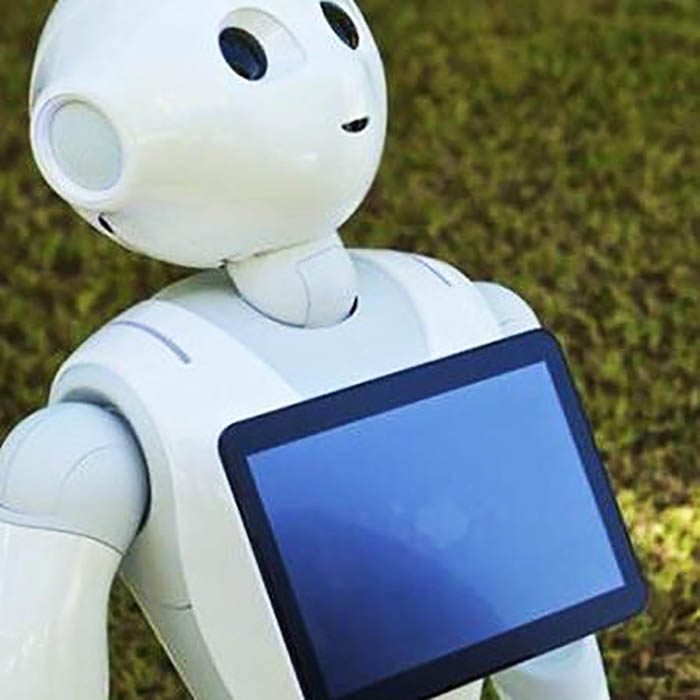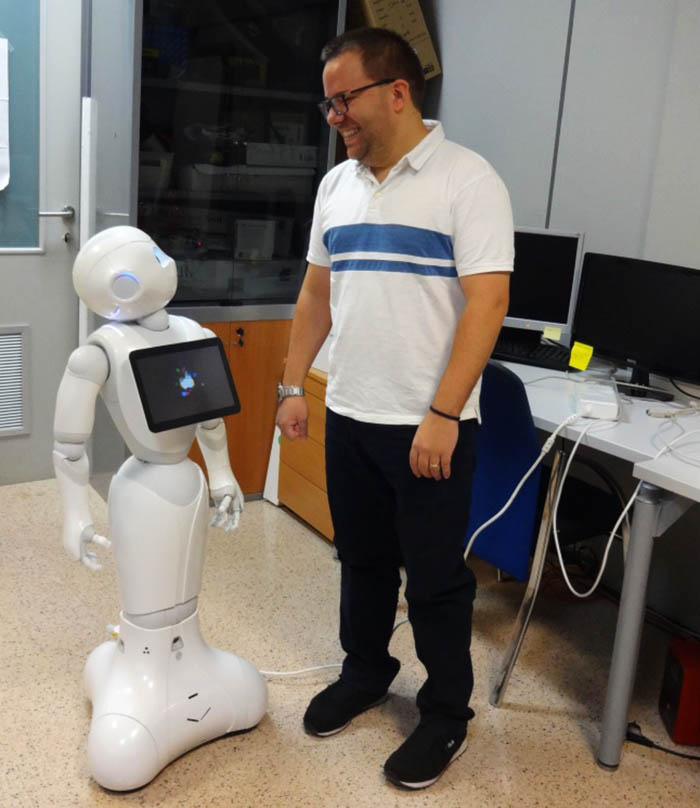Portuguese and Spanish researchers have just developed a personal trainer robotic system for the elderly, which defines personalized exercise plans, accompanies them in their implementation and alerts them to possible health problems.
This new “interactive friend”, called “Pharos”, intends to promote the active aging of the population and fight loneliness. The project involves the universities of Minho, Polytechnic of Valencia and Alicante.
“Pharos” wants to become a friendly and user-friendly virtual assistant, helping seniors to maintain a healthier life.
Although the humanoid model was manufactured in Japan, it is thanks to the system created by Ângelo Costa and Paulo Novais, from Synthetic Intelligence Lab from the Algoritmi Center of the University of Minho (UMinho), that this personal trainer can assess the physical condition of the elderly and then recommend the most appropriate activities.
One of the software modules designed at UMinho includes a decision support mechanism, based on the user's health status and profile, which allows the robot to build a personalized and adjustable exercise plan according to needs.
There is also another module that, using artificial intelligence, enables performance assessment, identification of possible health problems and confirmation that the exercises are being done properly.
The health status of the elderly is assessed using two processes. In a first stage, it is verified whether the movement capacity is within the limits of generic models, according to age, and then it is evaluated in the history of each user if there is manifestly a linear degradation of physical abilities.
“A low exercise performance can reveal underlying problems that would otherwise be impossible to detect. This artificial intelligence technique is innovative because it uses only the cameras present in the robot to detect movements”, explains researcher Ângelo Costa.
This information is communicated verbally and physically by “Pharos” through arm, head and torso movements, and also appears on an integrated screen that allows for more direct interaction with the user.
Based on the commercial robot “Pepper”, the “Pharos” measures 1,2 meters and weighs 28 kilos, with a user-friendly appearance that helps the adoption and use by the elderly.
The European population over 60 years is 13%, which is expected to exceed 25% in 2050, reveal data from the UN. “The support services for these people, such as caregivers and homes, will not be able to keep up with this rise, making more and more elderly people feel helpless at home”, warns professor Paulo Novais.
“Despite the effort made by various entities to address this social problem, UMinho has placed itself at the forefront with this project in terms of the development of assistant robots for elderly people”, emphasize the scientists.
Author Communication, Information and Image Office – University of Minho
Science in the Regional Press – Ciência Viva




















Comments